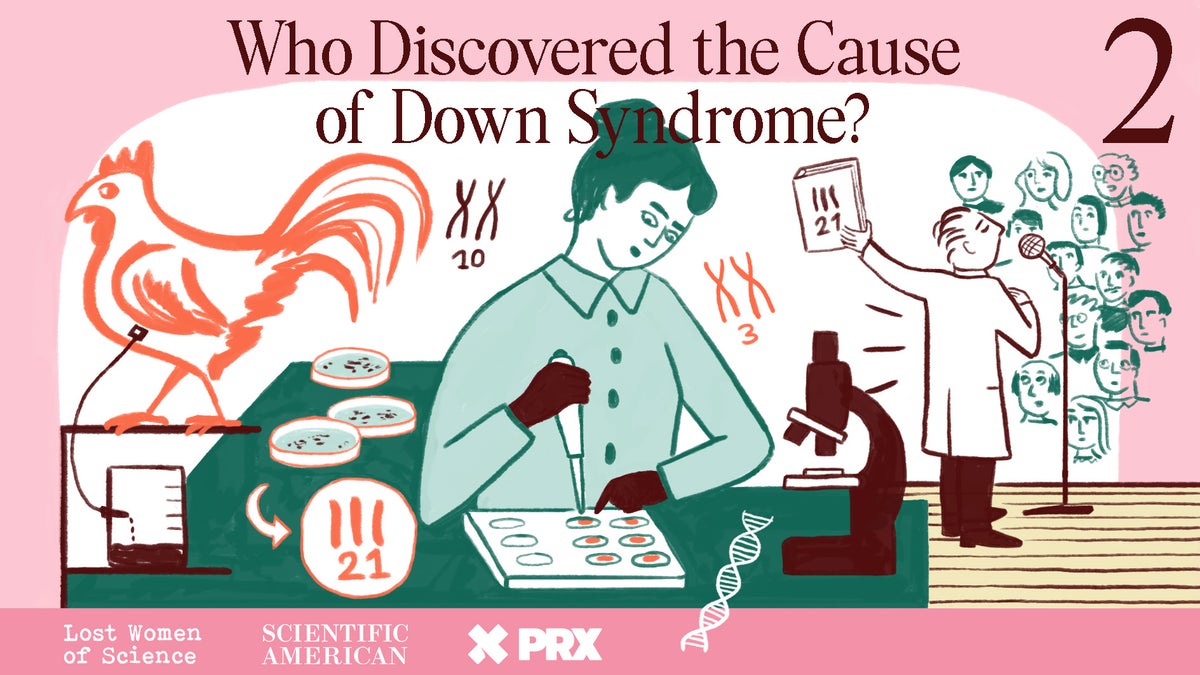This Researcher Discovered the Cause of Down Syndrome, But For 50 Years Got None of the Credit

```html
The Untold Story of Marthe Gautier and the Discovery of Trisomy 21
A Silent Pioneer
In the annals of scientific discovery, some stories remain hidden, obscured by the passage of time and the complexities of human interaction. Marthe Gautier's crucial role in identifying the genetic cause of Down syndrome is one such story. After her groundbreaking work in 1960, she transitioned to a successful career in pediatric cardiology, but for decades, her contribution was overshadowed by her colleague Jérôme Lejeune.
History, it seemed, had written her out. But on the 50th anniversary of the pivotal 1959 paper announcing the discovery, Gautier decided it was time to set the record straight.
The Fight for Recognition
Gautier's journey to reclaim her rightful place in scientific history was not without its obstacles. A planned conference appearance in 2014, where she was to receive a medal and share her story, was abruptly canceled just hours before the event. The medal was presented privately the next day, a small victory in a long battle.
Ultimately, towards the end of her life, Gautier's dedication and pioneering research finally received deserved recognition. Before her passing in 2022, the French government honored her significant contributions to science.
The Discovery and Its Impact
Gautier’s research, confirming Down syndrome as a genetic condition caused by an extra chromosome 21 (Trisomy 21), revolutionized the field. Dr. Elizabeth Head, a professor and vice chair for research at the University of California, Irvine, highlights the paper's lasting significance:
"In my first sentence of every introduction of every science paper I write, is ‘Down syndrome is, and it is caused by’ and I always cite that one paper. But that paper is rock solid. It's, it's held for a very long time."
The discovery enabled early intervention for children with Down syndrome, connecting families with crucial resources and support networks, and ultimately leading to improved quality of life.
A Complicated Legacy
While Gautier’s research paved the way for future genetic research, the ensuing authorship dispute cast a long shadow. Jérôme Lejeune's name became synonymous with the discovery, propelling his career forward and establishing him as a prominent figure in the scientific community. Gautier, meanwhile, remained silent, a choice influenced by the patriarchal dynamics of the time.
Dr. Aude Bernheim, a microbiologist who knew Gautier personally, sheds light on the situation: "Jérôme Lejeune not only took the discovery but also really used it to launch his career...The whole communication about who had discovered the chromosomal basis of Down syndrome was really made so that everything looked like Jérôme Lejeune had done this discovery by himself, and that's not reflective of the truth."
Speaking Out and Setting the Record Straight
After decades of silence, Gautier finally shared her account in 2009, coinciding with the 50th anniversary of the discovery. Her article in the French journal “Médecine Science” detailed her experience, revealing how she felt sidelined and cheated. This act of speaking out ignited a renewed examination of the discovery's history.
The Aftermath and Vindication
The ensuing investigation by INSERM’s ethics committee confirmed Gautier's decisive role, recognizing the significance of her contribution in the context of the time. Although the discovery was undeniably a team effort, the committee's findings highlighted the injustice Gautier faced.
In 2018, Gautier was awarded the rank of Commander of the National Order of Merit, France's highest civilian distinction, acknowledging her contribution to science. This recognition, while late in coming, offered a measure of closure in the final years of her life. Tatiana Giraud, Gautier's great-niece, reflects: "I think she was really happy that finally her discovery was recognized."
A Lasting Impact
Marthe Gautier’s story serves as a powerful reminder of the often-unsung contributions of women in science. Her perseverance, dedication, and eventual vindication offer a testament to the importance of recognizing and honoring those whose work has shaped our understanding of the world. Her legacy continues to inspire future generations of scientists, particularly women, to pursue their passions and fight for their rightful place in the scientific landscape.